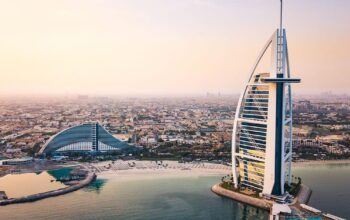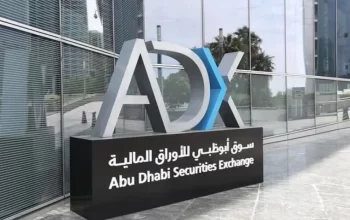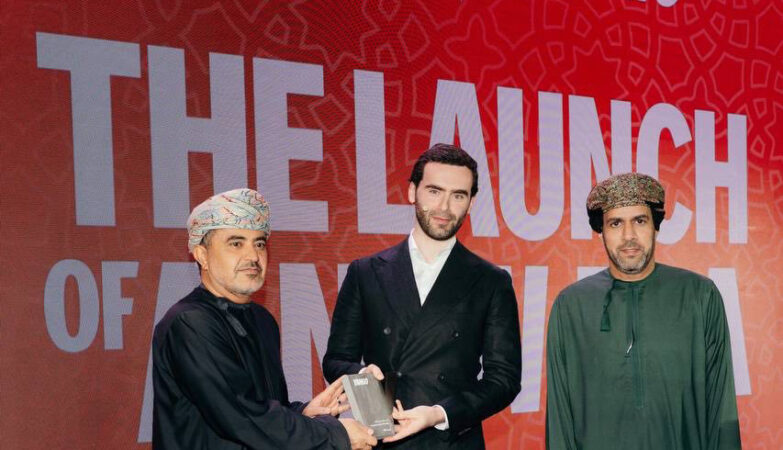Business News: Recent reports suggest that Gulf Cooperation Council (GCC) countries are on the cusp of significant economic expansion, with expectations for growth rates to double by 2025, reaching over 4.4%. According to a new release from Oxford Economics and the Institute of Chartered Accountants in England and Wales (ICAEW), economic growth across the Middle East is projected to reach approximately 2.1% in 2024, accelerating to 3.7% in 2025.
This upswing is largely driven by the resilience of the non-oil sectors within GCC economies, which are set to expand by 4.2% in the current year and by 4.4% in 2025. Recent readings of the Purchasing Managers’ Index (PMI) point to robust local business activity, supported by anticipated interest rate cuts that are expected to boost both consumer spending and private investment. Key sectors such as tourism, trade, and finance have emerged as pivotal growth drivers, playing a central role in regional efforts to diversify economic foundations beyond oil.
Non-Oil Sector Resilience and Strategic Investments
Scott Livermore, Chief Economist and Managing Director at Oxford Economics Middle East, highlighted the strategic foresight of GCC countries in proactively investing in non-oil sectors. This approach, coupled with a gradual recovery in oil production, is paving the way for strong growth prospects in 2025, underscoring the adaptability and resilience of GCC economies.
This investment is particularly evident in sectors such as renewable energy, technology, and tourism. For example, Saudi Arabia has committed to over $50 billion in its Vision 2030 initiatives to reduce oil dependency, including projects such as the NEOM smart city. Similarly, the UAE’s investments in clean energy, including the world’s largest single-site solar power project in Abu Dhabi, demonstrate the region’s commitment to innovation and sustainability.
Regional and Global Investment Trends
Henadi Khalifa, Regional Director at ICAEW’s Middle East Office, emphasized the importance of resilience amid global economic and geopolitical challenges. She expressed confidence that the Middle Eastern business community would continue to showcase its capacity for innovation and growth. Such resilience is crucial as GCC countries seek to attract increased foreign direct investment (FDI) to strengthen their economies.
Foreign investors are increasingly drawn to the region, with the UAE and Saudi Arabia leading in FDI due to their favorable policies and strategic location. In 2023, the UAE reported a 10% increase in FDI inflows, reaching nearly $20 billion, while Saudi Arabia’s FDI rose to $21.8 billion, as noted by the United Nations Conference on Trade and Development (UNCTAD). Both countries continue to introduce incentives to attract global corporations, further supporting their ambitious economic diversification goals.
Key Market Developments in GCC Countries
- Saudi Arabia: After experiencing a contraction in 2023, Saudi Arabia is forecasted to achieve a GDP growth rate of 2.5% in 2024. The main driver behind this increase is the strength of the private, non-oil sector, with growth expectations of 4.8%. Oil production is expected to pick up in the latter half of 2024, after voluntary cuts end in Q2, setting the stage for even stronger growth in 2025.
- UAE: The UAE’s GDP is anticipated to grow by 3.9% in 2024, largely supported by an expected 5.8% increase in oil production and continued growth in the non-oil sector. Key contributors include the tourism and manufacturing sectors, as well as real estate and construction, bolstered by Dubai’s Expo 2020 legacy projects.
- Bahrain: With oil production recovery and continued structural reforms, Bahrain’s economy is expected to grow by 3.5% in 2024. The non-oil sector, particularly tourism and infrastructure, remains a significant growth driver.
- Kuwait: Projected to grow by 2.8% in 2024, driven by fiscal expansion policies, increased oil production, and the new Al-Zour refinery project. However, relatively high-interest rates could moderate local consumption, potentially impacting economic output.
Investment Outlook and Economic Implications
GCC countries have attracted substantial global attention due to their proactive, strategic investments in diverse sectors. The focus on non-oil sector growth, sustainability, and infrastructure development aligns with broader global investment trends that emphasize resilience and adaptability. Economists project that these investments could continue to attract significant international capital, fortifying GCC economies and cementing their roles as key players in the global economy.
In summary, GCC economies are poised for accelerated growth, driven by robust non-oil sector development, strategic investments, and continued commitment to economic diversification. As global investors watch closely, the region’s economic landscape is set to continue transforming, driven by innovative projects and an increasingly resilient foundation.








